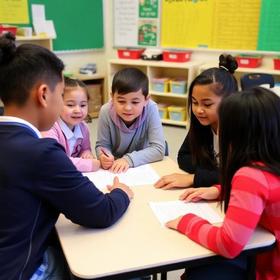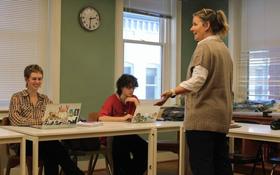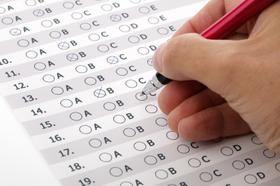I can just hear you thinking "He's got to be kidding. After spending inordinate amounts of my valuable time and resources getting my child into private school, the school can decide it doesn't want her back next year?"
Yes, the school can do that. Sad. But true. Read the contract which you signed with the school when your daughter was first accepted. It very clearly spells out the rights each party to the contract has. One of those clauses states that the school does not have to renew its contract with you automatically. Most contracts have finite terms which are normally for one academic year.
How do you avoid the school sending a non-renewal notice? You make sure that the following are in order:
1. Acceptable academic progress
While it would be nice if your child could be first in every subject she takes, that is asking a bit too much. But you definitely want to keep her in the top third. If the school recommends extra help or even tutoring, don't fight that recommendation. Calculus may have been a breeze for you. But if she is struggling with it, be ahead of the curve. Accept the help offered.
This video offers a look at Academy Hill School in Springfield, Massachusetts.
All they really want is to see are her best efforts and maximum cooperation in achieving good results. There's a larger lesson that the school is trying to teach here as well. And that is to not flinch at life's challenges. Life is full of seemingly impossible challenges and situations. Learning how to cope with these as a young person is part of the character-building in which any private school worth its salt is engaging.
2. Acceptable behavior
Everybody makes mistakes. But in the private school environment, there is very little tolerance, if any, for the major infractions such as sex, fighting, and substance abuse. Put another way, if your daughter is caught smoking pot or taking a swig of vodka, the school will take the action which is clearly spelled out in the discipline code. Serious action such as expulsion is probable. That means that non-renewal is a given.
As I point out in Codes of Conduct
"It will be difficult if not impossible to claim ignorance of the school's discipline code. The reason why is that schools want to run an orderly, safe learning community that abides by a set of rules. As part of their mission of educating the whole child, private schools aim to teach respect for others as well as respect for the rules and regulations which are a part of everyday life. Just as our legal system handles all kinds of offenses from running a red light to murder with appropriate due diligence and penalties for infractions, so does a school's code of conduct prescribe the consequences for various infractions. In a school community infractions of the rules such as drinking and substance abuse are generally grounds for expulsion."
This video offers a look at Dundas Valley Montessori School in Dundas, Ontario, Canada.
Depending on the severity of the infraction and the punishment meted out, your child may be put on probationary status for the rest of the academic year. However, to ensure that she is asked back for the next academic year, she must prove to the school community that she is an exemplary member of the community who has learned from her unfortunate experience.
Behavior issues often have their root in larger family issues such as divorce, the death of a parent or sibling and so on. Once more, try to be proactive and respond to any warning signals and signs before the situation gets out of hand. In other words, get your child the professional help she deserves before she self-destructs. Most schools can arrange for counseling.
3. Cooperation with the school
This last reason for potential non-renewal of your child has to do with us parents. If the school thinks that we are 'difficult' parents, we shouldn't be surprised if the school decides not to ask our children back. Remember: a private school education is a partnership. The cooperation between the three partners, i.e., school, parents and child, is what makes a private school education so valuable. Put another way, you cannot simply pay the fees and send your child off to private school to be educated. You have an invaluable role to play. While I understand the pressures and commitments involved in having a full-time career, I advise you to schedule time to attend events at your child's school. Some of my fondest memories of my eldest daughter's private school experience were the times when I would leave the office and drive to the playing fields on a Wednesday afternoon in the fall. I enjoyed watching my daughter playing field hockey. She was happy and totally involved in the game.
This video offers a look at Tucson Country Day School.
?
Some parents cannot help themselves. They hover. They complain. They demand frequent meetings with their children's teachers. That kind of behavior will not endear them to the school. Conversely, the kind of parent who pitches in and organizes a fundraising event or offers to chaperone a field trip will earn a reputation as a valued team player. Private schools value parents who love the school which their children attend because they know that satisfied parents will continue to spread the word about the school. Marketing a school has many components to it. Parental recommendations are a solid component in the marketing portfolio. They always have been and always will be.
This is the most important reason why you schedule the time to visit the campus, observe classes and ask lots of questions before making the huge commitment of sending your child to private school. Be absolutely certain that you are in agreement with the school's philosophy and goals. Read the handbook carefully. Understand what is both explicit and implicit in that document. You and your child will be expected to abide by it. The old adage "Better to be safe than sorry" applies.
Have questions? Contact us on Facebook. @privateschoolreview















